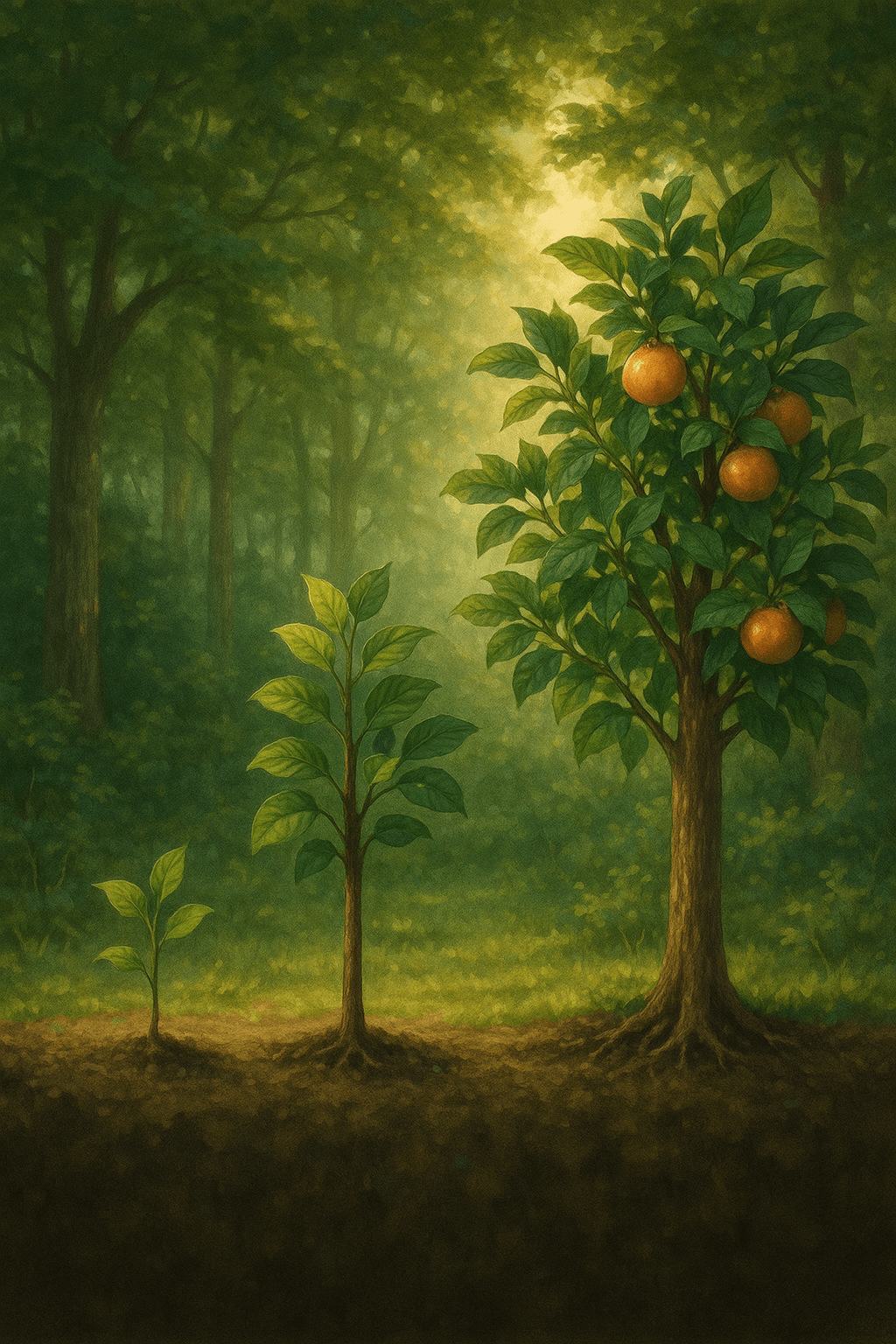The Virtue of Patience: Growth’s Lasting Rewards

Trees that are slow to grow bear the best fruit. — Molière
—What lingers after this line?
One-minute reflection
Where does this idea show up in your life right now?
Molière’s Metaphor of Maturity
Molière’s aphorism, likening slow-growing trees to those that yield the finest fruit, serves as a powerful metaphor for the value of patience in human endeavors. It suggests that the most worthwhile achievements often require time, care, and resilience to come to fruition. Rather than rushing the process, Molière calls us to appreciate gradual progress as an essential precondition for excellence.
Examples from Nature and Agriculture
This wisdom is vividly illustrated in the world of horticulture, where trees like the oak or the apple require years before they mature enough to produce their most robust yields. Farmers and gardeners recognize that rushing growth with artificial means often leads to shallow roots or tasteless fruit. Such natural cycles underline the importance of letting development take its course, reinforcing Molière’s analogy.
Historical Reflections on Patience and Success
History abounds with stories that echo this principle. For example, Michelangelo spent four years painstakingly painting the Sistine Chapel ceiling, insisting that mastery cannot be coaxed in haste. Similarly, in Winston Churchill’s long and often frustrating rise to British leadership, his eventual success embodied the rewards of perseverance over immediate gratification.
Psychological Insights into Delayed Gratification
Modern psychology has explored the concept of delayed gratification, most famously in the 1972 Stanford marshmallow experiment led by Walter Mischel. Children who resisted an immediate reward in favor of a larger, delayed one often experienced greater success later in life. This research mirrors Molière’s principle, emphasizing that the ability to wait and invest in long-term goals fosters stronger, more enduring outcomes.
Applying Patience in Personal Growth
Extending this to our own lives, investing time in developing skills, nurturing relationships, or building careers often yields the richest 'fruit.' Rather than seeking shortcuts, embracing patience allows us to cultivate depth and resilience. In this way, Molière’s insight remains as relevant today as ever—reminding us that the best results come to those willing to grow slowly, but surely.